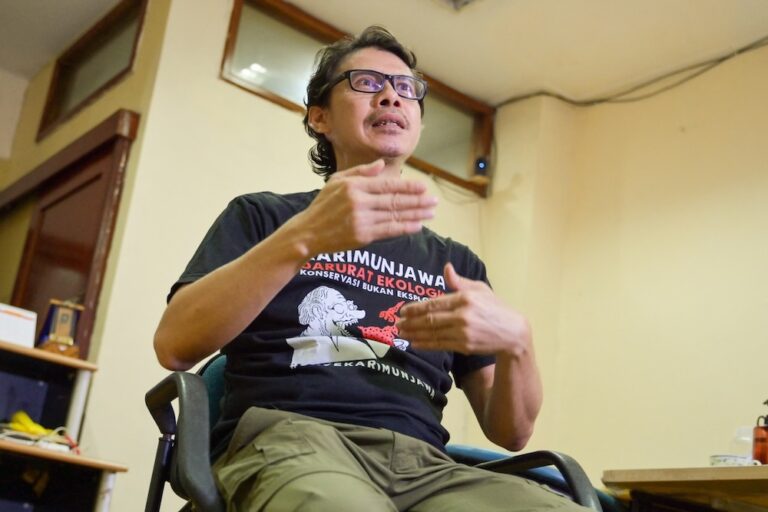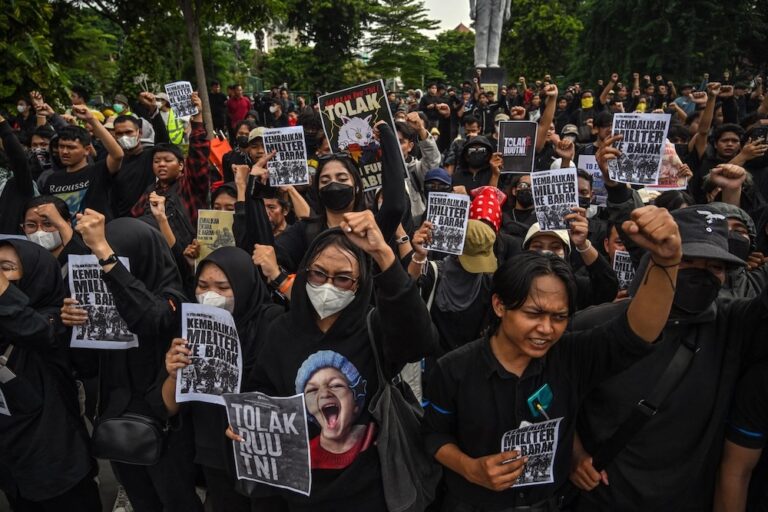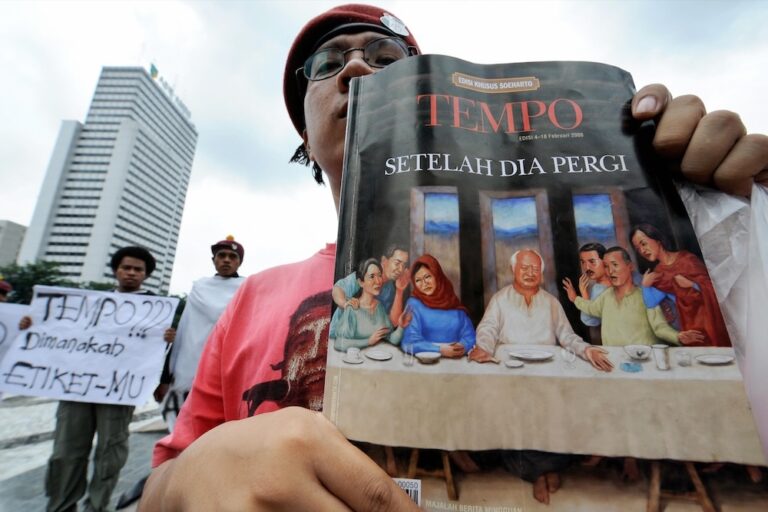(SEAPA/IFEX) – The Alliance of Independent Journalists (AJI), Indonesia’s largest journalists’ trade union, is protesting a new broadcast regulation, saying the restrictions and censorship introduced under it are a betrayal of the country’s national reform movement for a free and democratic society. In a statement released on 2 December 2005, AJI said regulation 50/12 dealing […]
(SEAPA/IFEX) – The Alliance of Independent Journalists (AJI), Indonesia’s largest journalists’ trade union, is protesting a new broadcast regulation, saying the restrictions and censorship introduced under it are a betrayal of the country’s national reform movement for a free and democratic society.
In a statement released on 2 December 2005, AJI said regulation 50/12 dealing with private broadcasters not only seriously restricts access to information but also reinstates the censorship that existed under President Suharto, who was toppled by the democratic reform movement in 1998. The regulation was signed by the government on 16 November.
According to AJI, there are several articles in this regulation that limit public access to information. For example, the provision banning national private broadcasters from relaying foreign broadcasts deprives the public of an opportunity to compare information from different sources.
The statement also says limiting the number of cities that a private broadcaster may cover to only 15 will hamper the distribution of information.
Under the new regulation, the Department of Communication and Information is intended to function as the Department of Information did during Suharto’s era. “The [reestablishment] of the Department of Information will seriously undermine the public’s right to information,” said the statement.
“There is strong indication that this department will be responsible for issuing licenses to broadcast operators as well as controlling contents and technical aspects of the broadcast regime,” AJI president Heru Hendratmoko told SEAPA.
AJI also noted that the new regulation, like its three predecessors on foreign broadcasters, subscription-based broadcasters and community broadcasters, violates the Indonesia Broadcasting Act no. 32/2002.
“The Indonesian Broadcasting Commission, the independent broadcast regulatory body, should have been involved in drafting these regulations. Hence, the absence of IBC involvement is a strong indication that the government wants to control the distribution of information to the public,” the statement said.
AJI urges President Susilo Bambang Yudhoyono not to promulgate this regulation. It also urges the President to remove Minister of Communication and Information Sofyan Djalil from his position for having formulated the regulation and to abolish the Department of Communication and Information.


